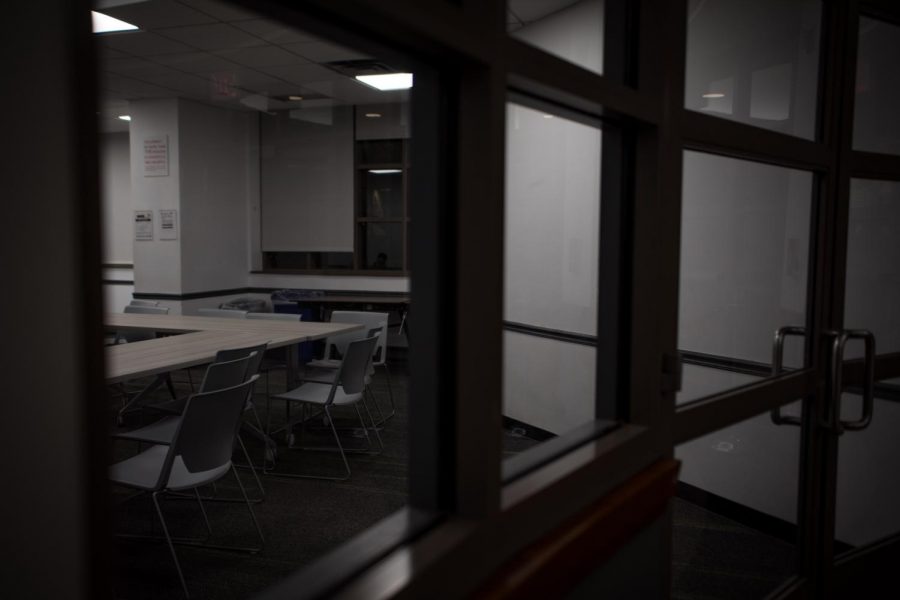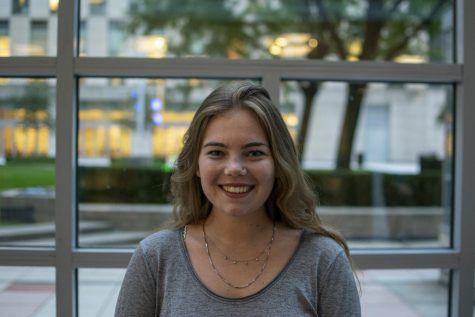Students Grapple with #MeToo Era Direction in SOUL Discussion
The organizers asked The Observer that no one who attended to discussion be quoted or named, so that they could share their thoughts freely.
November 14, 2018
On Monday, Nov. 12, Associate Director of Campus Ministry Erin Hoffman, Resident Assistant Katina Smith, FCLC ’19, Jen Stewart, Graduate School of Education (GSE) ’21, and Sara Cunningham, GSE ’22 hosted a SOUL Series Discussion on the #MeToo Movement in McMahon Hall. The event was a follow-up to a similar discussion held last year and was designed to provide a space for students to process and explore recent issues related to #MeToo.
Hoffman, the faculty organizer, explained how students often attend events where they listen to speakers but are not given the opportunity to engage in candid discussions, which she believes are necessary to truly process material, especially regarding issues like sexual assault.
The organizers asked The Observer that no one who attended to discussion be quoted or named, so that they could share their thoughts freely.
To begin the discussion, attendees and organizers set ground rules to facilitate a safe, comfortable space that promoted respectful conversation. Two short clips, “Ellen Says #MeToo” and “Lady Gaga: Dr. Ford Spoke Up To Protect Us,” were screened. Attendees were prompted to spend a few minutes in silence to gather their thoughts before beginning the discussion.
Reflecting on the Ellen Degeneres video, organizers noted that she credited the wrong woman with beginning the #MeToo movement when she referenced a 2017 tweet by actress Alyssa Milano. The group recognized that Tarana Burke, an African-American civil rights activist actually coined the term and started the movement 20 years before in 1997.
The conversation turned toward how women of color experience #MeToo. One attendee raised the issue of how women of color cannot separate the intersections of the identities of their gender and their race. Another student pondered how, if a culture doesn’t believe a white woman’s claim, what that means for women without the same privilege.
Students felt that recognizing the role of survivor’s white privilege and the lack of intersectionality in the #MeToo movement is an awareness that most do not possess.
The group recognized how the movement gained traction because of allegations made by white women of privilege in Hollywood and sought to recognize the voices of minorities, especially those of the LGBTQ community, whose stories had been ignored before the #MeToo movement exploded in 2017.
The group resolved that they want to see sexual assault treated with more humanity. They specifically noted how the #MeToo movement is quick to applaud survivors of sexual assault for coming forward and sharing their stories but does not recognize the women who are not in similar positions to do so. Members felt that it is important to recognize that coming forward with allegations can be a terrifying prospect, which can sometimes put survivors in danger.
The conversation evolved into an understanding of the different ways survivors of sexual assault managed their trauma. Students reflected on how there is no right way for a survivor to process and that an individual’s choices must always be respected and considered as valid.
The overarching tone from students in the room was that they wished sexual assault and the #MeToo movement were personalized, not politicized. The group agreed that these issues were not black and white and that there was a desire among the group for more warmth and humanity in regard to sexual assault in general.
The event concluded with a handout of available support systems at Fordham and organizers reminding students how important it is to keep having these kinds of conversations about the complexities surrounding the #MeToo movement and sexual assault.
Over the course of an hour and a half, the group dug into a number of different issues at the core of the #MeToo movement. By discussing the problems that students were able to identify in the movement, there was a sense of resolution in how the group wanted to approach the subject moving forward.














